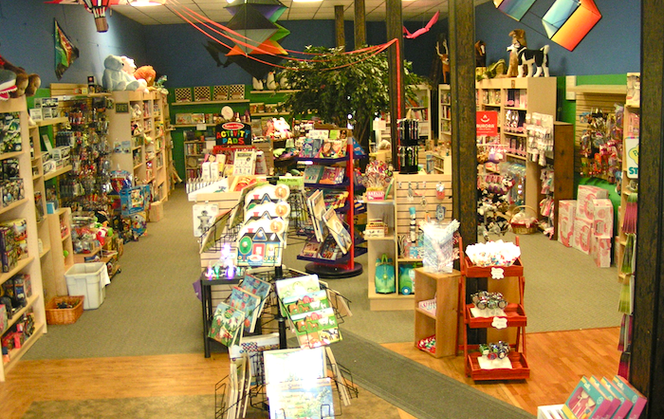The Graduate Entrepreneur Offers Advice To Future Business Owners
Entrepreneurship. The tentpole of the American economic bible. Capitalism’s siren song. It is the allure of owning one’s bown business, building one’s own brand, and growing it from the classic “Mom and Pop” shop into a thriving empire that has attracted American generation after generation into the hearts and minds of people around the world who seek to forge their own futures.
American entrepreneurship has long mimicked the idealism of America itself. The great expansion of American settlers toward the west coast and California in the nineteenth century was sparked, in large part, by the idea of Manifest Destiny. Manifest Destiny had said that America “had a right” to expand, and that it’s was inevitable. The idea of entrepreneurship, albeit less nefarious, largely speaks the same motto, people have a right to forge their own path to success and grow it into something much greater.
The quest of self sustaining success and the freedom that comes with being in charge of ones own destiny is what led Angel Rafter of the Nu Toy Store located in Tarrytown, NY to leave the corporate setting of IBM and partake in the high risk world of small business ownership, “I couldn’t imagine going back to corporate.” she says as a worker hands off several layers of shelves to be assembled in the storage room.
William Arroyo, owner of Riverview Wines and Spirits, also of Tarrytown, began his venture into the world of entrepreneurship with the same motivations, “I bought the store in 2008 because I wanted to make my own destiny and I was tired of rigid corporate hours.”
If it wasn’t obvious beforehand that entrepreneurship has been a vital element of American society, just look even further into the history of the United States when it became a political tool in the war between the capitalistic western society and the socialistic east during the Cold War. Entrepreneurship and the “hands off” idea of American government when it came to the ability of its citizens to build their own future served as a valuable tool in winning over those stuck under the boot of the USSR. Since then it has remained one of the few realms in politics that has survived the increasingly hostile partisanship. Whether one leans Democrat, Republican, or is a straight shooting independent, there is a good chance that there is a library sized collection of video, transcript, and sound bites of every parties’ politician touting the importance of entrepreneurship and small business in America.
It is not hard to see why entrepreneurship is the cornerstone of the American experience when owners like William express such enthusiasm in regards to all the freedoms and opportunities to learn about new things, “I’ve gotten to learn so much about all of the products and wines from all over the world” he says as he drapes a cleaning rag over a bottle of New Zealand sauvignon blanc from the store room for placement on the imported shelf.
It is William and Angel’s experience that every politician at every level, from town supervisor to President of the United States touts the importance of in America, a strong small business environment in the United States. However, the reality might be completely different from the rosier picture they paint or the promises they make. And there is one group in particular that might take pause at their future when contemplating owning their own business, the small business owners of tomorrow, college students and graduates.
When the economy crashed in 2008, the college graduate outlook became extremely bleak for straight out of college job prospects. Take into account the average student loan debt tallied somewhere north of thirty thousand and one could see why graduates might search for new opportunities for not only success, but simple survival. Enter entrepreneurship.
Fast forward several years to 2013. An article by Inc. Magazine, a publication devoted to small business ventures tallied that a whopping sixty three percent of “twenty something’s” or millennials wanted to start their own business. By 2015 the idea of small business owning became even more alluring to future graduates at even the high school level. An article by the Huffington Post tallied high school student interest in entrepreneurship even higher than college students at a massive seventy one percent, with sixty three percent expecting to open one straight out of college.
One might assume that starting a business straight out of college or high school is an act of futility purely because one hasn’t polished their financial skills, or developed a plan. That necessarily isn’t the case according to Angel, “The financial side comes to you, I still have so much more that I want to make it, there is so much I want to do still.”
Despite the high percentage of youth fantasizing about future companies becoming the next Facebook, Airbnb, or Dropbox, which are some of the most famous startups created by millennials, the data suggests that something is amiss. Articles by Forbes and The Atlantic, stretching back to 2015, suggest that while the intent is there, the follow through is not. The interesting tidbit of information also suggest that within the same year, the rate of start-up companies started to begin again as the economy began its slow ascent out of the gutter.
Perhaps the suspect behind the stagnant numbers is the sheer anxiety that comes with understanding the responsibility of owning a store and being the soul person that will determine whether it is successful or not, “I take a deep breathe and realize I’m in retail, I have to keep trying an working at it and it will succeed, as an entrepreneur you cannot be stressed because you will give yourself a heart attack,” says Angel when discussing the learning curve that comes with the job.
The average age of start-up company owner’s hovers between the middle aged around forty and fifty-five. This lends credence to the idea that the inexperience is a factor in preventing youth from taking that step to open a business. But is it the only factor? Why is it that the young seek to have their own business but seem to not follow through? The other answer is rather simple, and rather obvious. The second culprit at large is simply the debt to risk ratio that comes with a start-up business and with college debt at such engorged levels, most youth simply do not want to take the risk, and that is understandable.
So, what is it really like to start up a business, is it worth the risk? Is there anything crucial for young start-ups to know when creating their business? The answer is yes, according to Angel.
A crucial step in creating a successful start-up or small business venture is simply to understand the optics and location in which one wishes to open a business.
“A store named Baby Bees was going out of business and it was the perfect location. It was either books, shoes, or toys. I looked at what the town needed and toys was a better fit,” says Angel as she carefully lifts a crate full of Christmas decorations in the storage room onto a shelf to lay in wait for next years Christmas.
It is not the first time Angel has given that advice to prospective business owners as she revealed.
“I had a young lady whose mom owns a clothing store and she wanted to do something of her own. The thing you really have to do is research your town, you have to know your demographics.”
But simply knowing about the town isn’t enough, the next key is to find a way to make yourself unique and to stand out from the competition, because there will be competition. For anyone skeptical, just take a short drive throughout their local village or town and it won’t be long before every possible business has at least two or three different stores.
For Angel, what made her unique was what she sold.
“I sell new and used. People can choose to spend $5 for used or $20 for new, so depending on the financial times, people will come because they know they can find something.”
That was echoed by William whom had is own unique characteristic to his store that set him apart. With a window adorned with fauna and decorations that correspond to either the current season or closest holiday, Riverview offers a friendly and appetizing appearance to prospective customers before they ever even enter the store.
“It’s more of a boutique store with craft items and hand-picked selections, it’s very important to be different because there is a lot of competition and you want to stand out amongst the rest,” says William.
Building their business with an image and tailoring it to their customers has payed off dividends for William, and Angel. They have crafted not only a reputation, but a brand for themselves that has earned loyalty among their customers. One that is furthered by their customers telling their friends of the amazing store they often frequent and that they should go as well, effectively creating a network of patrons.
It is not uncommon for the same loyal customers to frequent the store numerous times a week.
An interesting take away at this point is to note that both store owners followed the optics of the studies which suggests that most small business or start up companies are that of people who have experience in a corporate setting: Angel, a former employee of IBM, and William, a tech consultant on Wall Street. There is no question that previous experience in a corporate setting could provide a substantial benefit to a prospective store owner. Depending on the position one might learn valuable experience such as hiring the proper employees, financial management, product demand and stock, and building a sustained relationship with vendors and cliental.
For Angel, one such area that a past background may assist in, is the proper balance between vendor and customer.
“I pick and choose who I work with, if I don’t like someone, they don’t come back. The people I worked with for years are because I like them. Vendors want to push up, sell you more expensive stuff but you have to know the financial situation of your town. Know your locals, see spending habits, and see what’s missing.”
She says as children run often chaotically around the store while their parents gallop like gazelle after them.
Angel’s store works in unison with many large globally known toy manufacturers such as Lego, Melissa and Doug, and Funko. The store also works in tandem with many local creators, artists, and even authors. One of Angel’s newest idea to help set her store apart is the complete conversion of the old storage room in the back of the store into a crafts room where a local toy maker will sit and build his creations, a large viewing window will accompany it so children and parents can visit and watch the toys they will one day purchase be made.
As a wine and spirits boutique, William’s success as a store relies almost purely on the influence of merchants and the considerations of customers. The “hand picked” selections of the store is not just a clever advertising motto, it is the entire business model. The shelves of Riverview are always stocked with not only the most talked about selection by sommeliers, or the most well known and respected names coming off the vineyard, but also the selections of his loyal and well versed customers.
While a background in a corporate setting might help create a well versed businessman capable of handling stocks, vendors, patrons, and finances, does it necessarily prove to be a deciding factor between a successful business and a failed one. The reality is that the financial risk may be much greater for younger prospective owners because of debt and uncertainty but for William, his past experience did not really prepare him for owning a store.
“I’ve never owned a store so basically I had to learn everything, but it did teach me a good work ethic and how to work hard at something in general,” he proclaimed.
But if there is one thing that was stated time and time again, if there was one aspect that every expert or article makes sure to throw in as an extra caveat, it is that the joy and benefit of owning a successful business cannot be quantified, and if you are willing to work hard at it then it will succeed.
For Angel, she cannot imagine doing anything else and if she could, she would do it all over again because if offers something unique to everyone.
“I would do it for reasons people don’t realize. I can spend time with my children because they come here after school. I can be challenged mentally at work while still being a stay at home mom.”
For William, his sentiments were short and sweet but he echoed the idea that with passion and hard work it will work.
“There’s pros and cons with everything. Be ready to be hands on and spend a lot of time at work.”
For all college and high school students who look forward to owning a business one day, it is simply a question of what is good for the individual. With college debt soaring to all time highs, it might be best to build up some experience and provide a financial parachute to soften the risk factor. However, with proper planning, research, motivation, and a willingness to treat a business as if it were a child, then the benefits could mean a successful business that one could call their own.

Michael Dunnings, otherwise known by the Hungarian equivalent "Miska", is a native of Dobbs Ferry and a senior studying Journalism at Mercy College. Michael...








